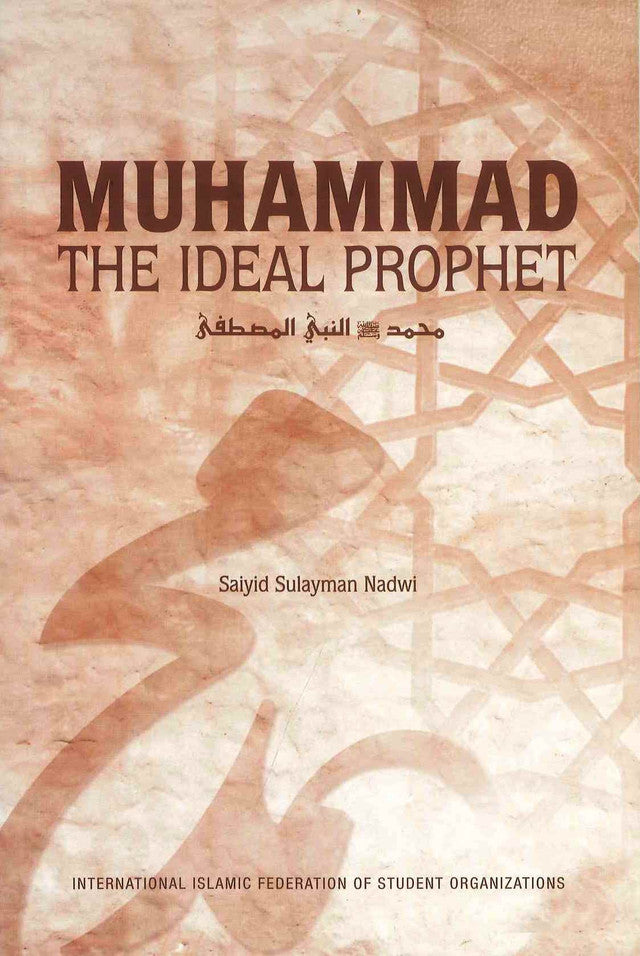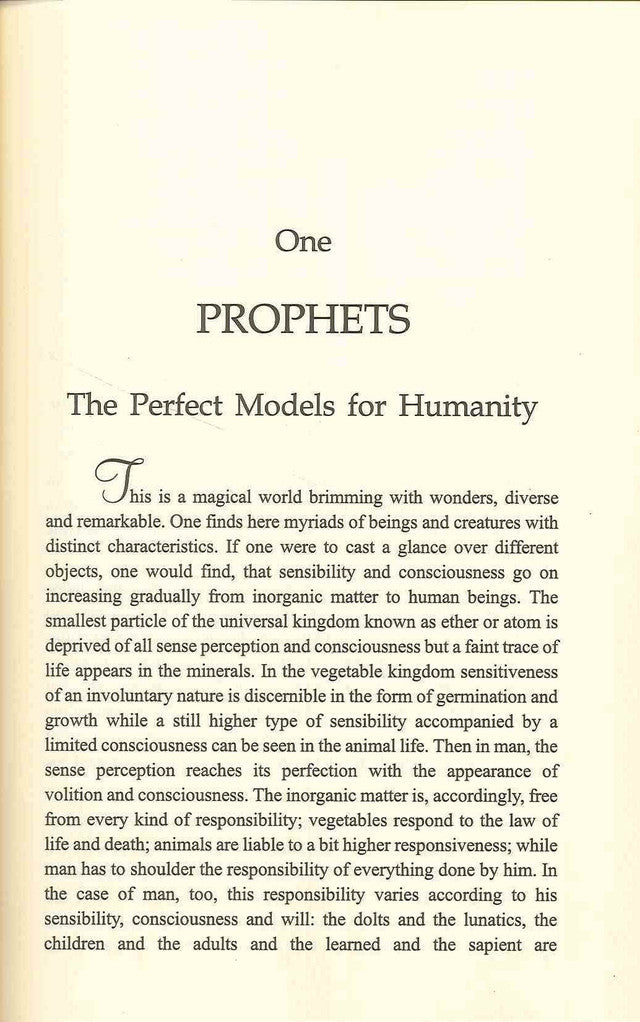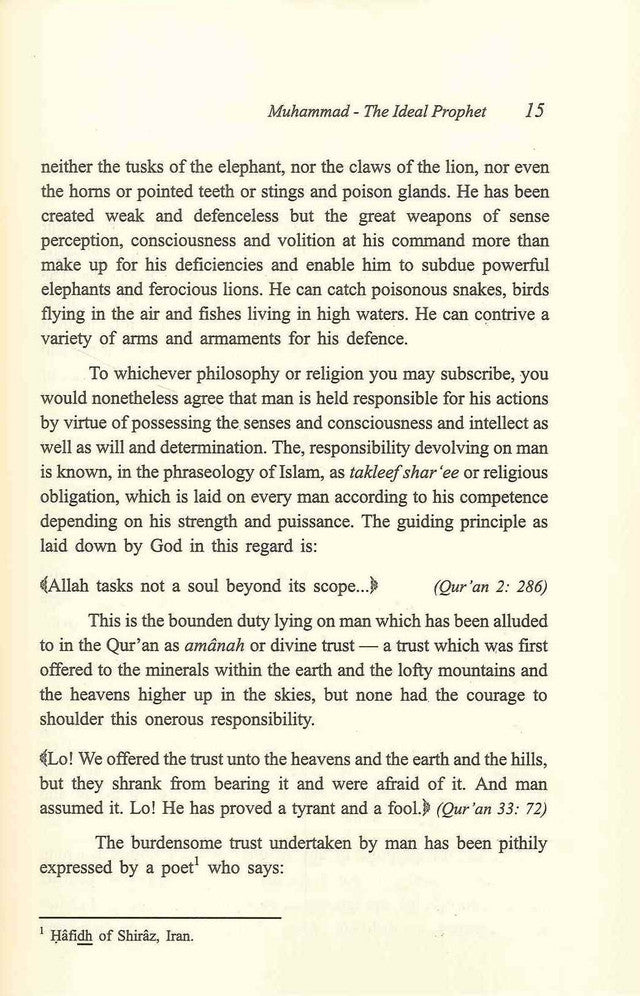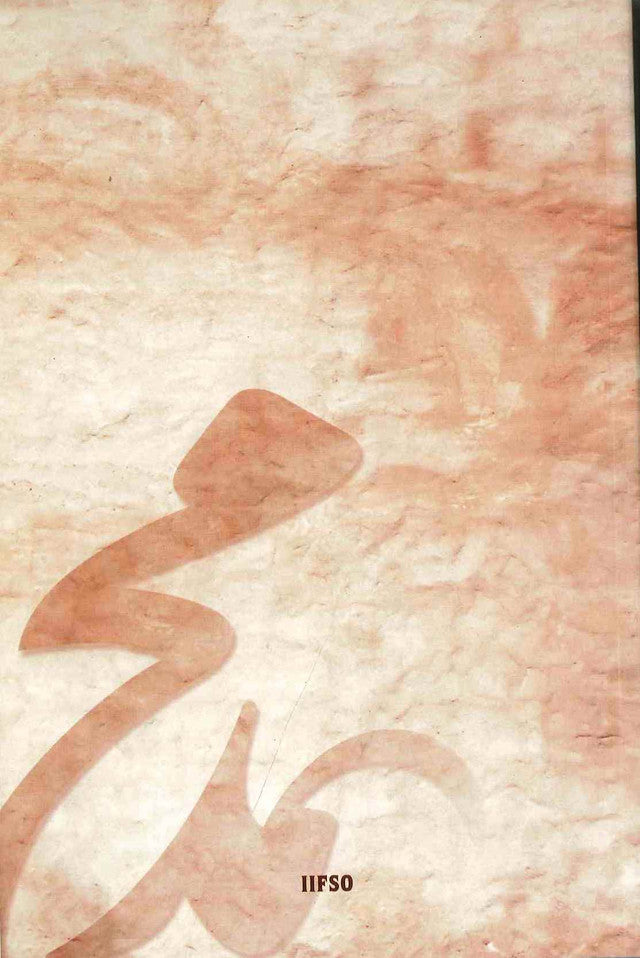Muhammad The Ideal Prophet صلی الله علیه وآله وسلم
Muhammad The Ideal Prophet صلی الله علیه وآله وسلم
Publisher:
IIPH (International Islamic Publishing House)
Author:
Syed Abul Hassan Ali AL Nadwi
Language:
English
Binding:
Soft Cover
Pages: 192
Size: 16x21cm
Couldn't load pickup availability




Collapsible content
Description of Book
Muhammad The Ideal Prophet صلی الله علیه وآله وسلم
Publisher
IIPH (International Islamic Publishing House)
Author
- Syed Abul Hassan Ali AL Nadwi
Sample Pages - Content
PAGE NO :1
MUHAMMAD
THE IDEAL PROPHET
محمد النبي المصطفى
Saiyid Sulayman Nadwi
INTERNATIONAL ISLAMIC FEDERATION OF STUDENT ORGANIZATIONS
PAGE NO :2
One
PROPHETS
The Perfect Models for Humanity
This is a magical world brimming with wonders, diverse
and remarkable. One finds here myriads of beings and creatures with distinct characteristics. If one were to cast a glance over different objects, one would find, that sensibility and consciousness go on increasing gradually from inorganic matter to human beings. The smallest particle of the universal kingdom known as ether or atom is deprived of all sense perception and consciousness but a faint trace of life appears in the minerals. In the vegetable kingdom sensitiveness of an involuntary nature is discernible in the form of germination and growth while a still higher type of sensibility accompanied by a limited consciousness can be seen in the animal life. Then in man, the sense perception reaches its perfection with the appearance of volition and consciousness. The inorganic matter is, accordingly, free from every kind of responsibility; vegetables respond to the law of life and death; animals are liable to a bit higher responsiveness; while man has to shoulder the responsibility of everything done by him. In the case of man, too, this responsibility varies according to his sensibility, consciousness and will: the dolts and the lunatics, the children and the adults and the learned and the sapient are
PAGE NO:3
Muhammad - The Ideal Prophet 15
neither the tusks of the elephant, nor the claws of the lion, nor even the horns or pointed teeth or stings and poison glands. He has been created weak and defenceless but the great weapons of sense perception, consciousness and volition at his command more than make up for his deficiencies and enable him to subdue powerful elephants and ferocious lions. He can catch poisonous snakes, birds flying in the air and fishes living in high waters. He can contrive a variety of arms and armaments for his defence.
To whichever philosophy or religion you may subscribe, you would nonetheless agree that man is held responsible for his actions by virtue of possessing the senses and consciousness and intellect as well as will and determination. The, responsibility devolving on man is known, in the phraseology of Islam, as takleef shar'ee or religious obligation, which is laid on every man according to his competence depending on his strength and puissance. The guiding principle as laid down by God in this regard is:
Allah tasks not a soul beyond its scope...>>
(Qur'an 2: 286)
This is the bounden duty lying on man which has been alluded to in the Qur'an as amânah or divine trust - a trust which was first offered to the minerals within the earth and the lofty mountains and the heavens higher up in the skies, but none had the courage to shoulder this onerous responsibility.
(Lo! We offered the trust unto the heavens and the earth and the hills, but they shrank from bearing it and were afraid of it. And man assumed it. Lo! He has proved a tyrant and a fool.) (Qur'an 33: 72)
The burdensome trust undertaken by man has been pithily expressed by a poet' who says:
Hafidh of Shiraz, Iran.
Who is Syed Abul Hassan Ali AL Nadwi?
This work, originally written in Arabic, argues that Islam remains a dynamic, relevant force in the modern world. The author, Sayyed Abul Hasan 'Ali Nadwi, explores Islam's historical role in advancing human progress, countering the belief that the religion has outlived its purpose. He asserts that Islam is a timeless way of life, continually contributing to both material welfare and spiritual growth. Nadwi highlights the decline of Islamic civilization and the resulting loss to humanity, offering a fresh perspective on the lasting impact of Islam and other civilizations on global history.




